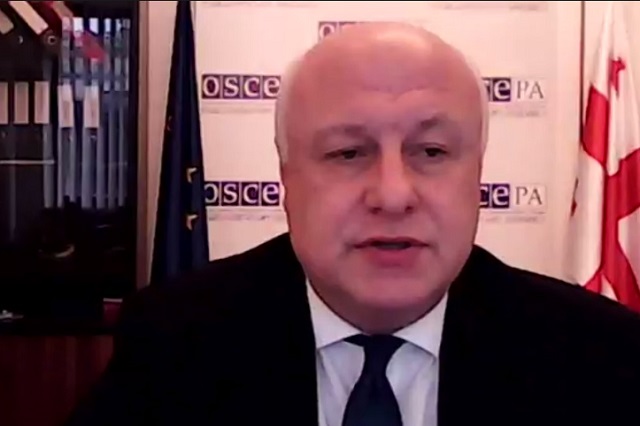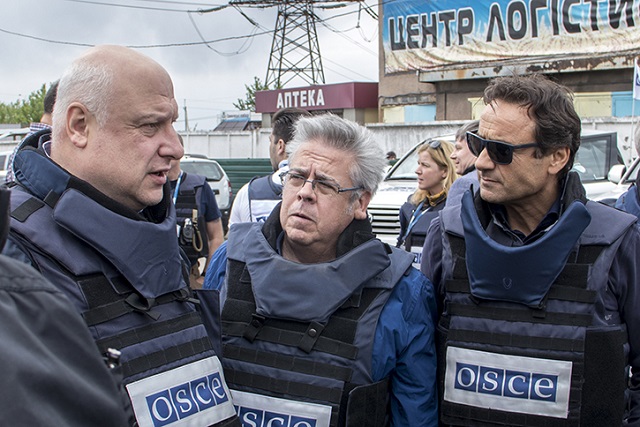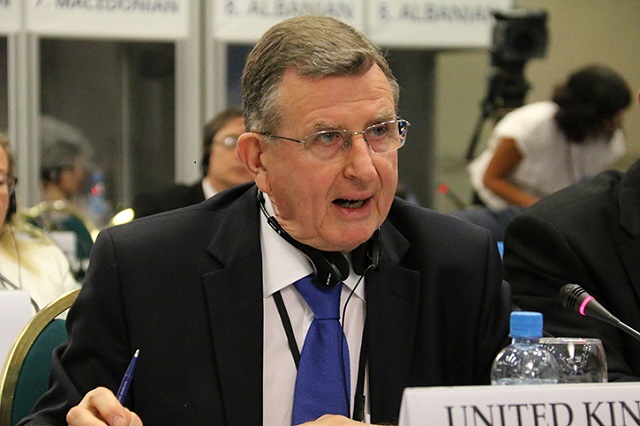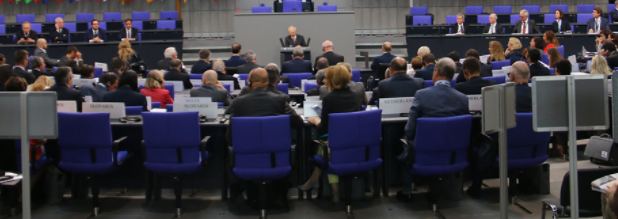COPENHAGEN, 12 August 2020 – To address challenges such as armed conflicts, climate change, widespread poverty and inequality, it is necessary to actively include youth, as well as women and minorities, in decision-making mechanisms, OSCE Parliamentary Assembly President George Tsereteli (Georgia) said Wednesday at the Samarkand Human Rights Web Forum.
Speaking at the opening session, President Tsereteli said that young people’s interests must be addressed comprehensively and that it is up to the older generations to engage the youth in policy-making.
“The economic and social impacts of the coronavirus pandemic have disrupted nearly all aspects of life for all segments of society,” Tsereteli said. “But young people now have to bear much greater risks when it comes to their education, their employment, their disposable income, and livelihood. In a very short period of time, this crisis has demonstrated a potential to exacerbate inequalities between generations and to alienate the youngest segment of our populations. We must remain vigilant about this.”
The forum, held under the theme “Youth 2020: Global Solidarity, Sustainable Development and Human Rights,” is part of the UN75 initiative to mark the 75th anniversary of the United Nations, and serves as a follow-up to the Asian Human Rights Forum held in Samarkand on 22-23 November 2018, which was attended by Tsereteli.
Read also
Co-organized by the OSCE, the National Human Rights Center of the Republic of Uzbekistan, the Foreign Ministry, the UN Country Team in Uzbekistan, and Friedrich Ebert Stiftung, the two-day event is exploring topics including the development of international standards for the rights of young people, youth participation in advancing the UN’s Sustainable Development Goals, human rights education for youth, and young people’s roles in peace and security.
In his remarks, Tsereteli noted that while young people are underrepresented in most national parliaments, and consequently also within the OSCE PA, the Assembly has worked to build youth political dialogue, capacity-building, and the sharing of best practices. “Earlier this year, we established a network of young parliamentarians, which is meant to provide all of the OSCE PA’s tools and resources to help these young leaders reach their full potential,” Tsereteli pointed out.
The network referred to by the PA President was the result of a two-day seminar in early February held in Washington by the U.S. Commission on Security and Cooperation in Europe (Helsinki Commission), chaired by Alcee L. Hastings.
The Samarkand Human Rights Forum includes remarks by Shavkat Mirziyoyev, President of Uzbekistan; UN Secretary General António Guterres; United Nations High Commissioner for Human Rights Michelle Bachelet; UNESCO Director General Audrey Azoulay; and Martin Chungong, Secretary General of the Inter-Parliamentary Union; as well as representatives of other international organizations and OSCE institutions.
The event will continue through Thursday and is expected to close with the adoption of the Samarkand Resolution on Youth Rights.
Watch the web forum on YouTube.
For President Tsreteli’s full remarks, please click here. (PDF)
OSCE Parliamentary Assembly






















































